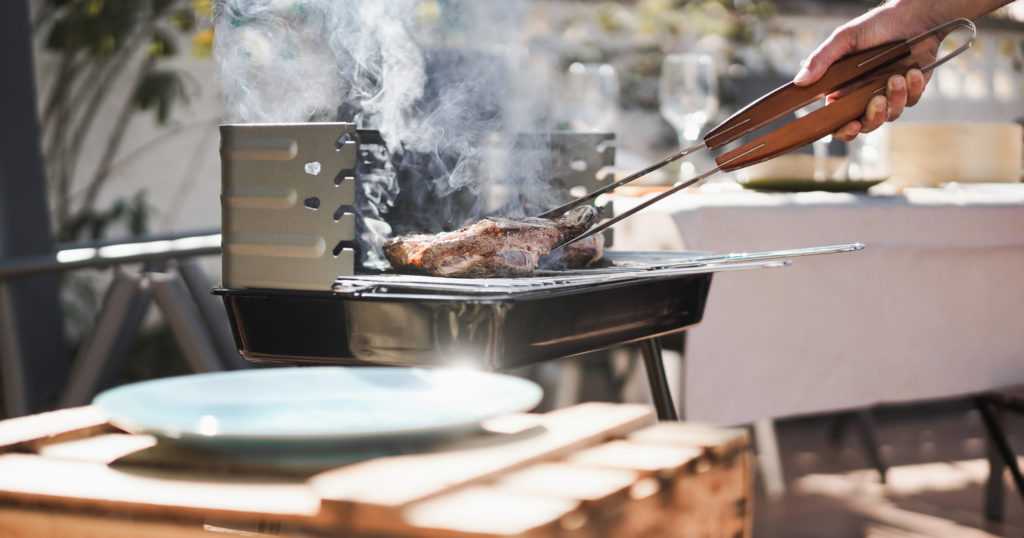The Business of BBQ


For many Americans, barbecue is much more than slow cooking seasoned meat on low heat inside flavorful smoke. Depending on whom you ask, it is a global pastime with distinct regional variations, a craft, or even a form of art whose works are subject to intense debate.


While the average Northerner might define barbecuing as simply placing meat on a hot grill outdoors, many Southerners might provide a more involved definition, down to what kind of equipment, sauces, and cooking times are required. Barbecue is a noun and a verb; capturing one of the biggest trends in food for both the home chef and professionals.
Barbecue (aka BBQ or Bar-B-Que) also is big business for independent entrepreneurs and global corporations. According to the Thomas Index Report, a research and industrial sourcing platform for North American companies, U.S. professional and at home barbecue grill sales are forecast to reach nearly $2.8 billion in 2021 and sourcing for barbecue grills rose 81% year on year through May 31.
Restaurants dedicated to barbecue, or that prominently feature it on their menus, are ubiquitous and in some cases benefit from the aura of popular names. Television show creator Guy Fieri has Guy’s Bar-B-Que Joint in Atlantic City. Weber Grill Restaurant has five locations in the Midwest, which complement its international business of selling cooking grills. BBQ Holdings is a publicly traded company with several restaurant brands, including the Famous Dave’s chain that has locations in 32 states and four other countries.
On Walmart.com, the best-selling barbecue sauce recently was Sweet Baby Ray’s. On Amazon, the top spot has gone to The Original Japanese Barbecue Sauce by Bachan’s. Both portals sell dozens of barbecue brands, ranging from the obscure to household names such as Heinz and Jack Daniel’s. Then there are e-commerce sites like All Things Barbecue, BBQGuys, and TheBBQSuperStore that sell equipment, ingredients, and clothes.
WORLDWIDE, PART TIME
Richard Parker and Mark Rasmussen of West Michigan are co-owners of TheBBQSuperStore.com. They sell rubs, sauces, injections, cooking accessories, and apparel with their logo. The partners buy wholesale from well-established brands and up-and-coming barbecue suppliers, but they also sell products that Parker and Rasmussen make themselves.
“Business surged last year during the pandemic, when everyone was home cooking,” Parker says. “Now with the summer here, and so many people buying all these rubs and sauces for outdoor barbecuing, our suppliers are working through order backlogs.”
Parker and Rasmussen run the part-time venture while maintaining day jobs, and competing in national barbecue cooking competitions. They bought out a barbecue e-commerce business in 2012 and changed the name. With Rasmussen handling inventory and Parker handling internet duties, the partners started working the business from their basements, steadily expanding until in 2018 they moved operations into a third-party fulfillment center that uses an outsourced workforce.
TheBBQSuperStore.com sells nationwide, with the majority of customers in Texas, Florida, Georgia, and California. They also are international with many customers in Canada, Europe, Australia, and New Zealand. Their biggest seller is the Executioner rub, which Parker and Rasmussen created. Although they do not sell smokers and grills, the pitmasters’ smoker of choice is an Outlaw Smoker, while the Weber and PK brands make Parker’s and Rasmussen’s favorite grills.
“This is a craft,” Rasmussen says. “Our own rubs, sauces, and injections are small batches of high quality. For accessories, we sell lots of items that we personally have used when cooking barbecue and know for a fact that they can do a good job.”
CHICAGO INSTITUTION
Ultimately it all comes down to taste. At least, that’s the case for restaurateurs like Dean Carson, owner of Carson’s Steak and BBQ. He has Illinois locations in Chicago and Deerfield, as well as a Milwaukee restaurant. The business has been in operation since 1977.
“We consider ourselves gourmet barbecue,” he says. “We start off with buying the best meat available. Our sauce is flavorful and thick, because it has a lot of special ingredients. In the actual cooking, we use real, wood-burning Southern Pride smokers. Two things go in there. Our sauce, on top of our meat. We add nothing else. We do not boil, marinate, tenderize, or dry rub.”
Dean Carson was careful not to reveal all his trade secrets. However he did share that his barbecue sauce combines various regional elements of vinegar, mustard and tomato-based styles. Carson’s has won high praise over the years, such as receiving a Michelin recommendation for its baby back ribs and inclusion on the presidential menu of Air Force One under the Jimmy Carter administration.
The pandemic didn’t hamper business too much, thanks to loyal customers and a strong carryout option that was in place long before COVID-19 lockdowns started in March 2020. Carson’s neither shuttered nor laid off workers due to pandemic-related financial pressures. The only employees who left did so voluntarily, he says, mainly out of fear of infection that ran rampant through the nation.
As the populace has gotten vaccinations and dining rooms have welcomed back in-person customers, Carson’s new challenge has been finding enough workers to keep up with demand. While looking to overcome that labor shortage, the restaurants have had to turn away some potential customers. Hence a large banner that recently went up outside the Chicago restaurant that reads, “NOW HIRING.”
NEW YORK CUISINE
Airis Johnson, the owner of Airis Foods, is a Brooklyn-based professional chef with a deep love of barbecue. Her bona fides include working for celebrity chefs Danny Meyer and Gordon Ramsay, as well as competing on the televised cooking shows Chopped and Beat Bobby Flay. (The latter celebrity chef also has had TV programs called Bobby Flay’s Barbecue Addiction and BBQ with Bobby Flay.)
One of Johnson’s earliest signs she could turn cooking into a career came during college, when partygoers praised her barbecue. She later attended culinary school and for the past several years she has prepared luxury meals for corporate and private events.
Her favorite barbecue foods are baby back ribs and marinated chicken. She also makes barbecue meatballs. As for sauce brands, Johnson prefers Stubb’s, Sweet Baby Ray’s, and even Kraft as a base that she enhances with her own ingredients. Blue Smoke and Dinosaur Bar-B-Que are her preferred barbecue restaurants in New York.
Johnson plans to expand her repertoire by studying barbecue from pitmasters in Missouri, South Carolina, and Texas. “Smoking meat is an art,” she says. “I do grill at a chef’s level, but I want to learn how to smoke meat like a true pitmaster.”

